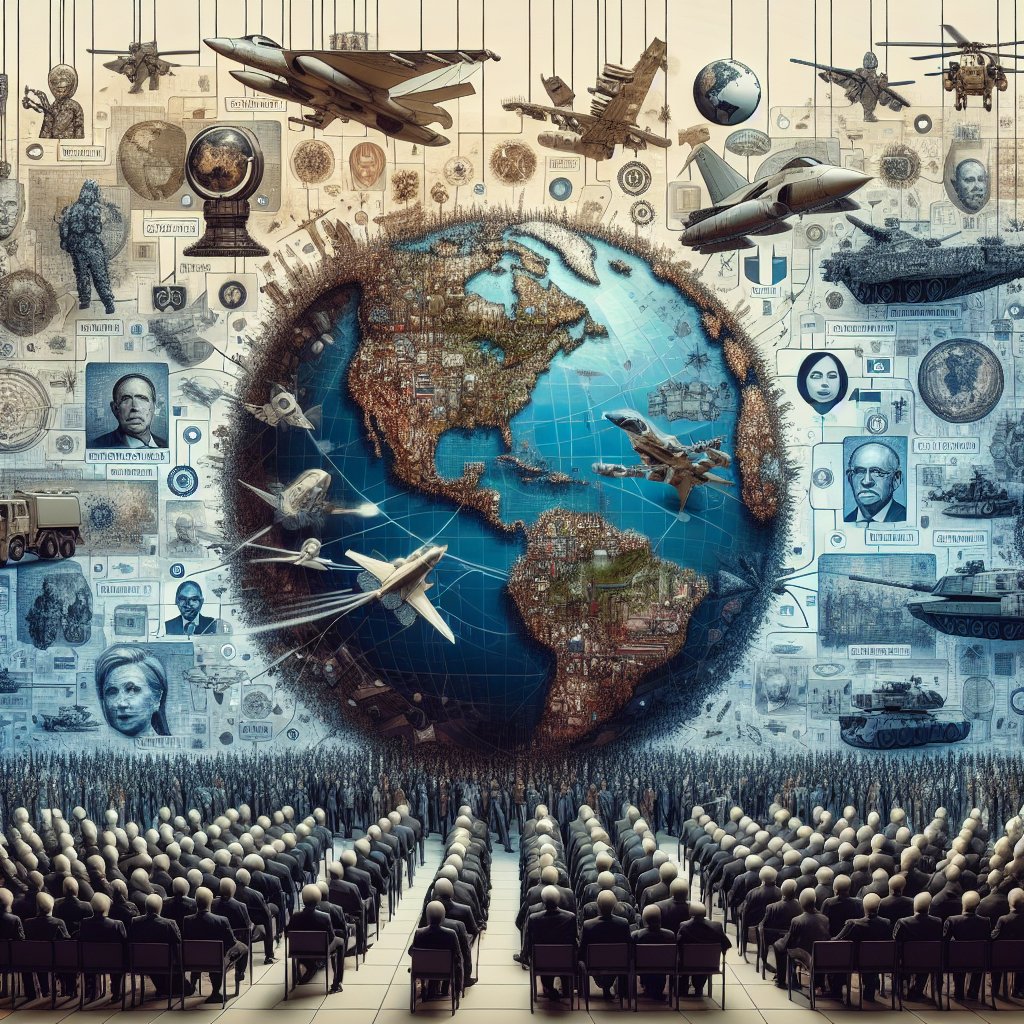Image created by AI
The Evolving Dynamics of Russia-Ukraine Conflict: EU Division, Russian Discontent, and International Ramifications
As European Union (EU) member states navigate the complexities of providing military assistance to Ukraine amidst an ongoing armed conflict, the decision-making related to weapon utilization has emerged as a contentious issue. The EU's stance on Ukraine's liberty to deploy European-provided weaponry against Russian military objectives is far from monolithic. This terrain is governed by disparate national decisions, where individual member states, such as the Czech Republic and Estonia, lean towards allowing Ukraine discretion, as per the frameworks of international law. Notably, Czech President Petr Pavel and Estonian Defense Minister Hanno Pevkur have vocalized their opinions favoring Ukraine's autonomy in compliance with the United Nations (UN) Charter.
In contrast, Poland's Deputy Defense Minister Pawel Zalewski solidifies the country's position, advocating the removal of limitations on Ukraine's long-distance military offensives into Russian territory. However, a countering sentiment is pronounced in Italy, as Foreign Minister Antonio Tajani signals the nation's refusal to permit the use of Italian-supplied Storm Shadow missiles for such endeavours, clarifying Italy and NATO's nonbelligerent stance towards Russia. This disparity implicates a logistical labyrinth for Ukraine, complicating the usage of identical weapon systems diversely restricted based on their country of origin.
On the battleground, negligible territorial shifts portray a persistent stalemate. Russian military bloggers assert minor advancements in the Kursk Oblast region, with both Ukrainian and Russian forces experiencing incremental gains. Yet, these assertions lack independent corroboration.
While the frontline's oscillations continue, the Russian populace's discontent regarding the Ukrainian offensive into Kursk Oblast is becoming increasingly apparent, even within Russian state-sanctioned data spheres. State-owned polling agencies document a growing unrest and a notable drop in President Vladimir Putin's approval ratings. These metrics may hold limited accuracy but hint at the Kremlin's recognition of rising societal alarm and the subsequent need for a calibrated communication strategy to placate domestic perceptions.
In an international context, Venezuela's extradition of Colombian nationals, who allegedly fought alongside Ukrainian military forces, underscores the tightening alliance with Russia. This action not only symbolizes Russian diplomatic clout among its allies but also sets a precedent for interstate collaboration in mutually targeting foreign mercenaries.
Hungary's interactions with Russia, specifically through Russian gas exports and bilateral cooperation, shed light on an intensified tie between the two nations. Meetings between Hungarian Foreign Minister Peter Szijjarto and Gazprom head Alexey Miller signify Hungary's substantial reliance on Russian energy and signal their aligned interests.
Meanwhile, Ukrainian President Volodymyr Zelensky's dismissal of Air Force Commander Lieutenant General Mykola Oleshchuk suggests internal military reconfigurations. Lieutenant General Anatoliy Kryvonozhko takes the interim helm of the Ukrainian Air Force, indicating shifting leadership dynamics within Ukraine's defense architecture.










